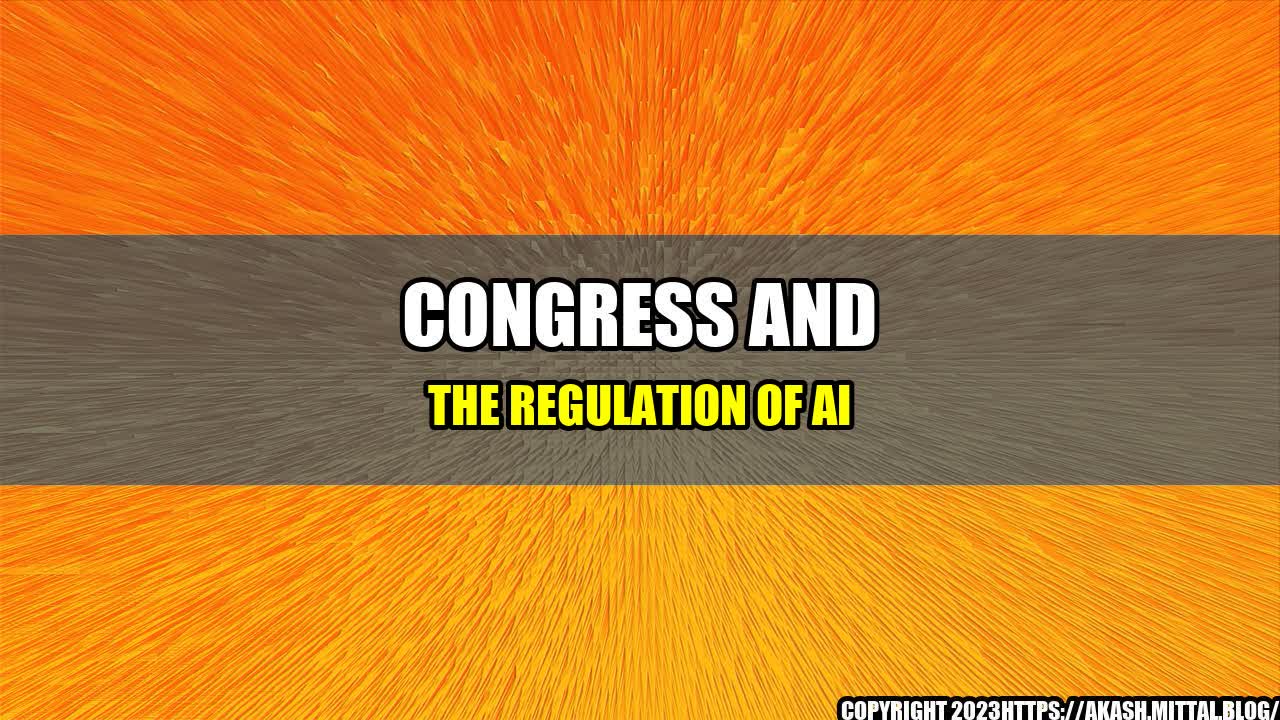
In today's world, artificial intelligence (AI) has become an integral part of our daily lives. From virtual assistants to self-driving cars, AI has transformed the way we live and work. But with the increasing use of AI, there is also a growing concern about its impact on society. This has led Congress to take a closer look at the regulation of AI.
"We need to have a national conversation about what it is we want, from a regulatory perspective, from artificial intelligence."
- Fred Upton, U.S. Representative from Michigan
AI has the potential to revolutionize industries and bring about significant benefits to society. However, with this new technology comes new risks and challenges. For example, there is concern that the use of AI could lead to widespread job displacement, as machines replace humans in certain tasks. There is also the possibility of AI being used to perpetuate bias or discrimination.
These challenges have prompted lawmakers to consider the need for regulation. However, regulating AI is not a straightforward task. AI is a complex technology that is constantly evolving, making it difficult to keep up with the latest developments and anticipate potential risks.
One of the biggest challenges facing Congress in the regulation of AI is the lack of consensus on what exactly should be regulated. While some lawmakers are focused on specific applications of AI, others are more concerned with broader principles, such as transparency and accountability.
Another challenge is the difficulty inherent in regulating a technology that is constantly changing. As AI evolves, so must regulations. This requires a flexible regulatory framework that can adapt to new developments in the field.
To better understand the need for regulation, it is helpful to look at some quantifiable examples of AI in action:
So, what can Congress do to regulate AI? While there is no one-size-fits-all approach, there are several potential approaches that lawmakers could consider:
So, what can we take away from all of this? Here are three key points:
Curated by Team Akash.Mittal.Blog
Share on Twitter Share on LinkedIn